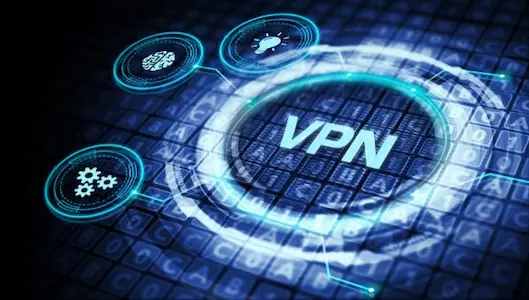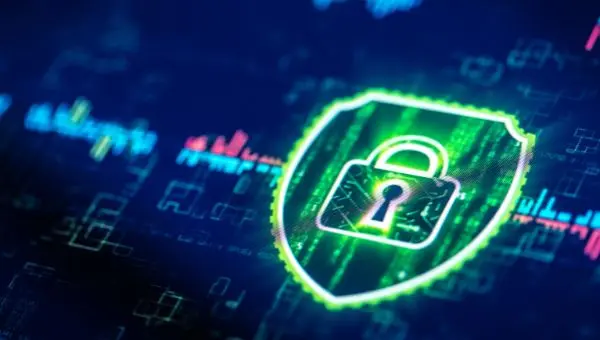Have ever heard this:- Best VPNs Make You Completely Anonymous or VPNs or VPNs are hard to use? Maybe you have heard they can keep you safe online, or maybe you have heard they are not worth it. Well now, it’s time to uncover the truth.
VPNs stand for Virtual Private Networks and nowadays, people talk about them a lot on the internet. VPNs are known for hiding what you do online. They also protect your information. But there is still much confusion about what VPNs can really do for you.
In this article, we will look at the biggest myths about VPNs directly. We will explore the most common beliefs. And we will reveal what is true and what is false. So let us find the myths and debunk them
Myth 1: A VPN With a Dedicated IP Offers the Same Privacy as Shared IP VPNs

Many people think any VPN, whether it has a dedicated IP or shared IP, gives the same privacy. But, let me clear this up for you. A dedicated IP means you get your own unique IP address and only you use it. You can learn more about it if you want. On the other hand, shared IP is used by many people at the same time.
Here is the important part. A Dedicated IP is great for some reasons. Websites are less likely to block. The reason is it doesn’t look like a general VPN IP used by many people. A dedicated IP is also good for logging into certain secure sites that may be suspicious of shared IPs.
But if you want more privacy then a shared IP can be better. Because your online activities mix in with others using the same IP. This makes it harder to track what you do while a dedicated IP is easier to link your actions to as only you use that IP address.
Myth 2: VPNs Make You Completely Anonymous
One common belief is if you use a Virtual Private Network, no one can know who you are online. This sounds great but it’s not completely true. A VPN does a good job of hiding your internet address and makes it hard for websites to know your location. But it does not make you totally invisible.
First, you need to know about cookies. Cookies are small files websites put on your device. They help the website remember your visits and what you did there. For example, when a shopping site remembers what’s in your cart, that’s cookies at work. Even with a VPN, these cookies can tell a website who you are if you visit again.
There is also something called browser fingerprinting but this is more complex. Every browser, like Chrome or Firefox, has unique settings and add-ons. Websites can look at this unique mix of settings to recognize your browser. For example, if your browser has a rare language setting or unusual add-ons, it can make it easier to track.
You also need to remember that VPN providers can keep records of what you do online. Good VPNs promise not to keep these records. But not all VPNs do this. So, it’s important to choose a trustworthy VPN.
Myth 3: VPNs Always Speed Up Your Internet
Not sure about you but I have heard about this myth a lot of times. This is not always true and let’s understand why. When you use a Virtual Private Network, your data travels through a special tunnel. This tunnel is secure and it can also make things a bit slower because of data encryption. It means turning it into a code to keep it safe which will take extra time.
If the VPN server is far from you then the data will take longer to travel. This can slow your internet speed. But there is one case where a VPN will help. Sometimes, your internet provider limits your speed, especially for videos or big downloads. In this case, a VPN will help by hiding what you are doing. So your provider can’t slow you down on purpose.
Myth 4: All VPNs Are The Same

This myth says all VPN services are the same but that’s not right. VPNs can be different in many ways.
- Servers:- Different servers are important to change your IP and location when you are using a VPN. Think about features like where the servers are located. Some VPNs have servers all around the world while others have just a few. This can affect your speed and what content you can access.
- Security and Privacy:- The level of security is another difference. Some VPNs use strong methods to keep your data safe. Others may not be as secure. It can affect privacy as well. Good VPNs do not keep records of what you do online but not every VPN promises this. So read the terms and conditions properly before using any VPN service
- Ease of Use:- It is obvious that different VPN services will have different user UIs and experiences. Some are very simple with just a few buttons while some have more settings for advanced users.
- Price:- Of course, the price matters. Free VPNs can be good for basic use. But they put many important limits, like less data, less choice to select locations, privacy or more ads. But Paid VPNs offers more features and better security.
Myth 5: VPNs Are Hard to Use
As I have already mentioned, the complexity of a VPN depends on User Interface and Experience but is not that hard to use. Some people think using a VPN is only for tech experts. This is not true. Nowadays, many VPNs are designed to be easy to use.
When you get a VPN, you just need to download an app. This app is like any other on your phone or computer. Once you have it, you just need to press a button to turn the VPN on or off. The app handles everything else. It chooses the best server for you and keeps your data safe (you can change the server location if you want though).
Some VPNs have extra settings. You can use these if you want, but you don’t have to. The basic setup is usually enough for most users. So, if VPNs are new to you, don’t worry. They are not as hard to use as you may think.
Myth 6: You Don’t Need a VPN at Home
Many people think VPNs are only required when you use public Wi-Fi or for businesses, like at a café or airport. But using a VPN at home is also a good idea. Even at home, your online privacy can be at risk. Your internet provider can see websites you visit and they can even track what you do online and share this with advertisers.
A VPN hides your activities from your internet provider. It encrypts your data, which means it turns it into a secret code. This keeps your browsing private. The good thing about VPN is you can access websites and services not available in your country. This is great for watching shows from other countries or getting around blocks on certain websites.
Myth 7: Free VPNs Are As Good As Paid Ones
Another common thought is that free VPNs work just as well as paid ones. But this is not always true. Free VPNs are good for basic use. But they always have some limits. Let’s look at what they are.
- Data Limits:- Free VPNs usually have data limits. This means you can only use a certain amount of data each month. If you stream videos or download a lot, you may run out of data fast. They can also be slower as many people use free VPNs, so the servers get crowded.
- Advertisement:- One of the irritating things for many users is ads. Many free VPNs show ads to make money.
- Security and Privacy:- The security and privacy may not be as good as paid VPNs. Some free VPNs do not use the best methods to keep your data safe and they might even track what you do online and share this with advertisers.
- Customer Support:- Paid VPNs provide better and quicker customer service as they might lose their customer if they don’t give good service. Some Free VPNs also provide customer support but are not as efficient as Paid ones.
- Options to select locations manually: Free VPNs do not allow you to select locations manually whereas in paid VPNs you can select the country as per your wish.
Conclusion
I am glad you read the full article. I hope all the myths are debunked. So, when choosing a VPN, you can now make a proper decision. When choosing a VPN, think about what you need it for. See how easy it is to use, the level of security, and if it fits your budget.
This will help you find the right VPN for you. And remember, using a VPN is just one part of staying safe online. Continue to learn and stay smart about how you use the Internet